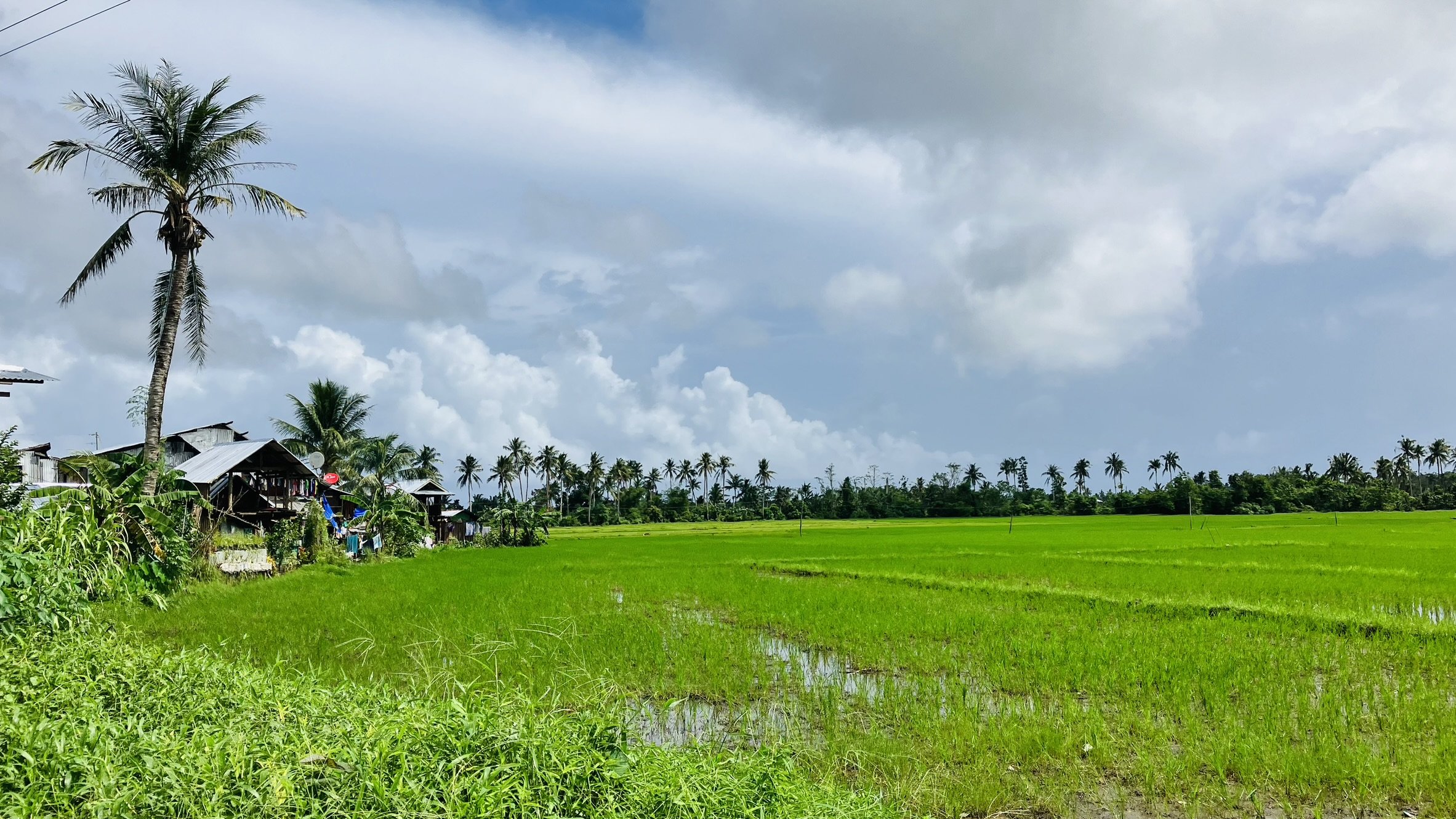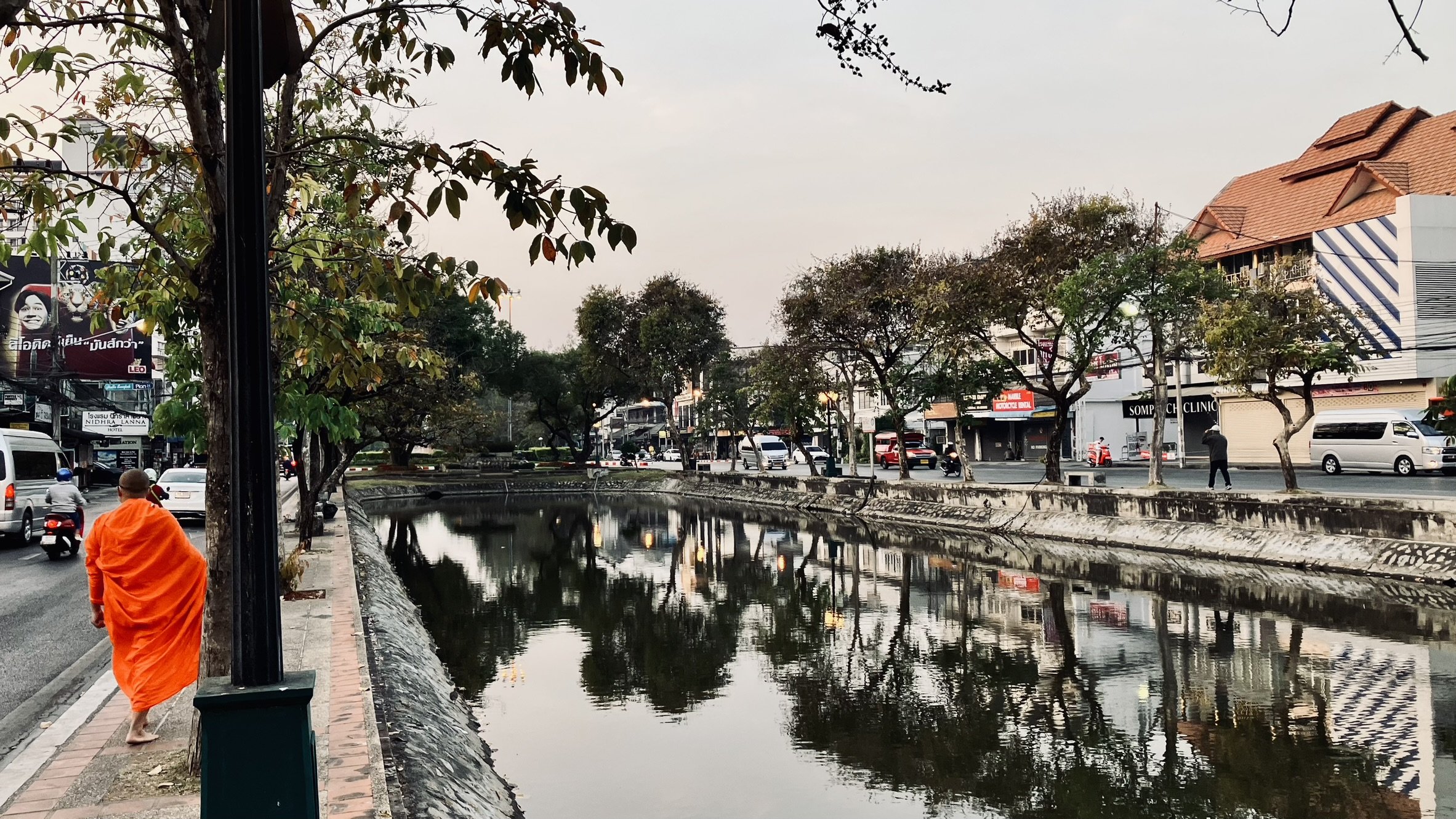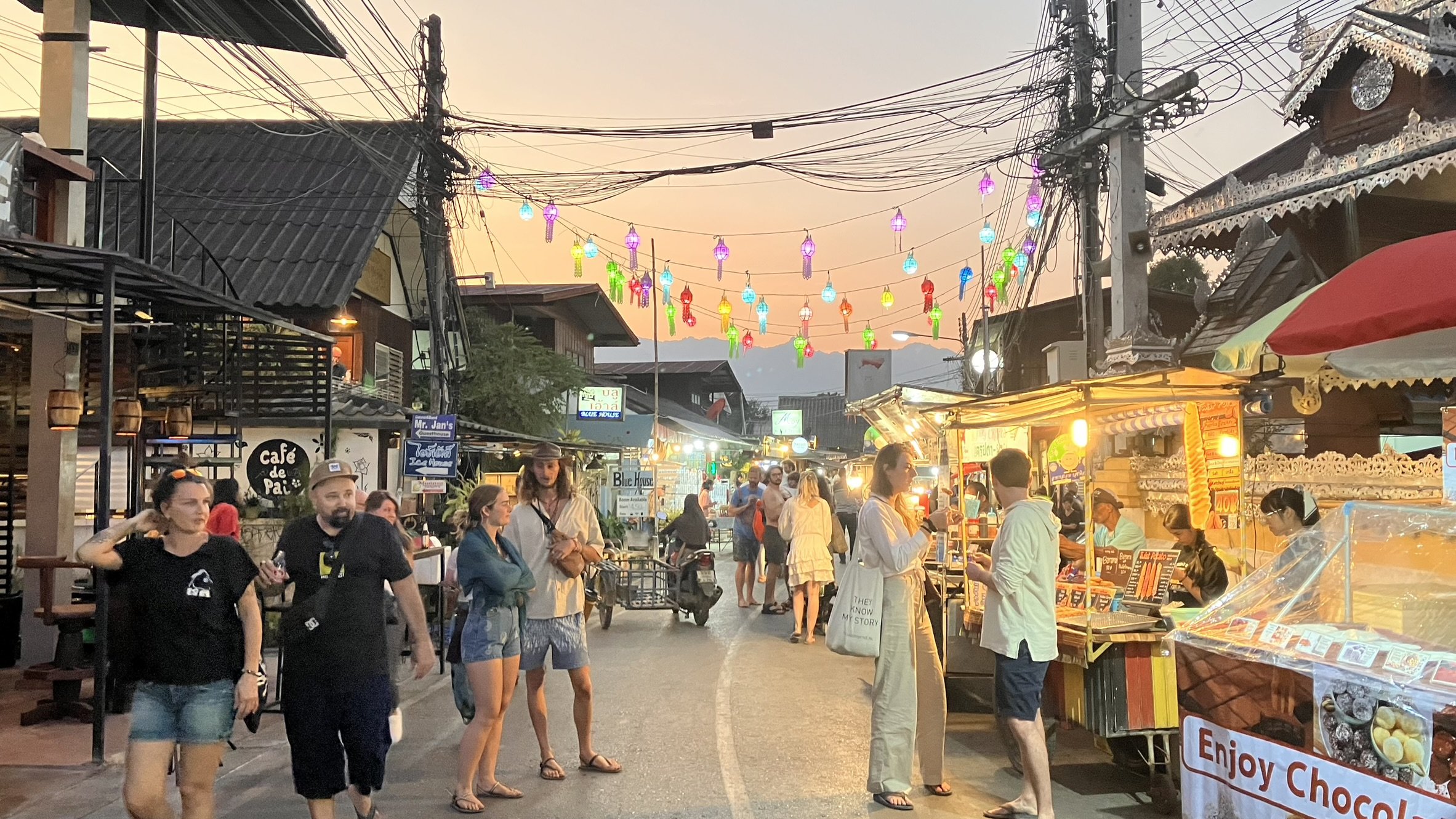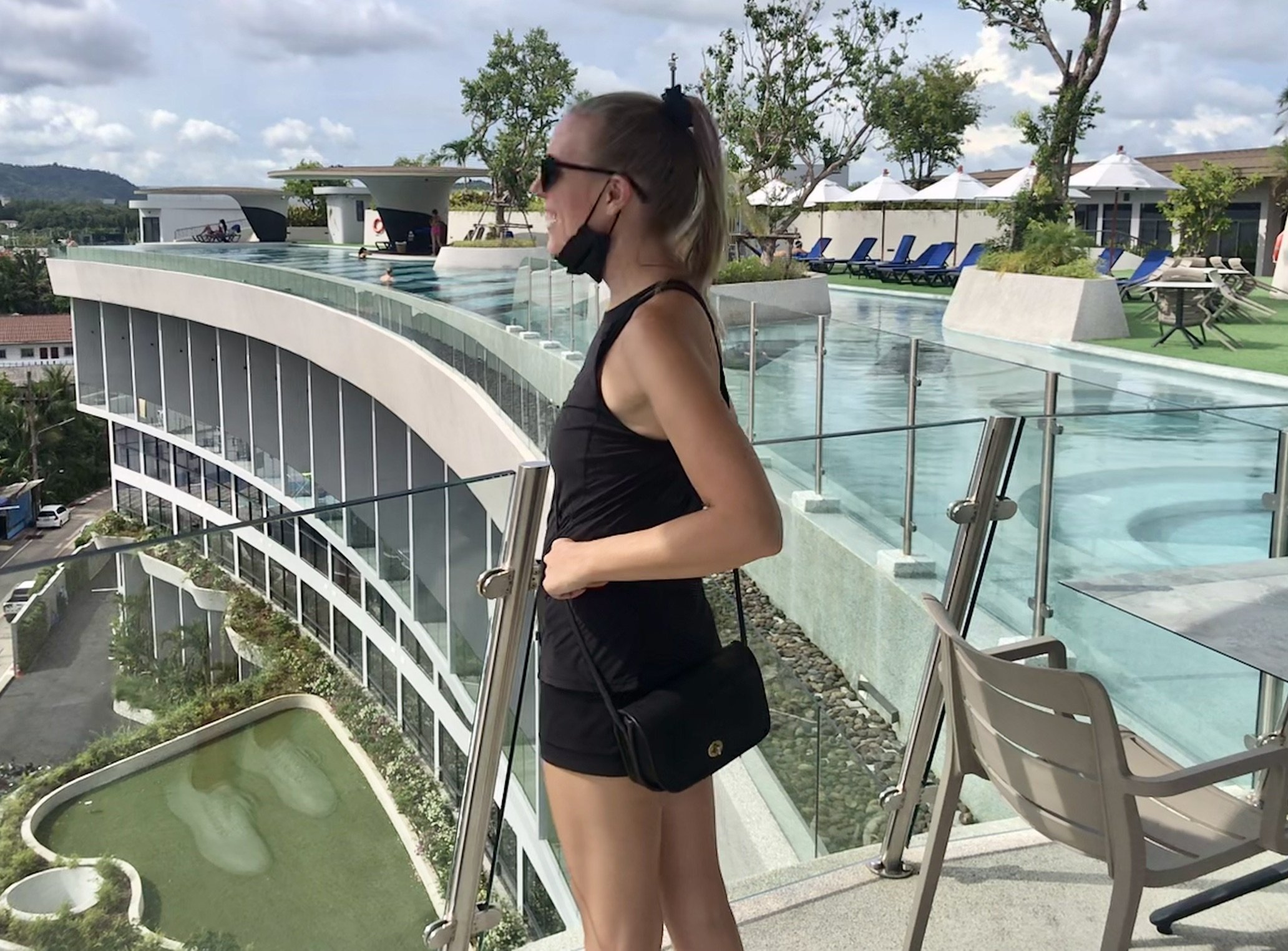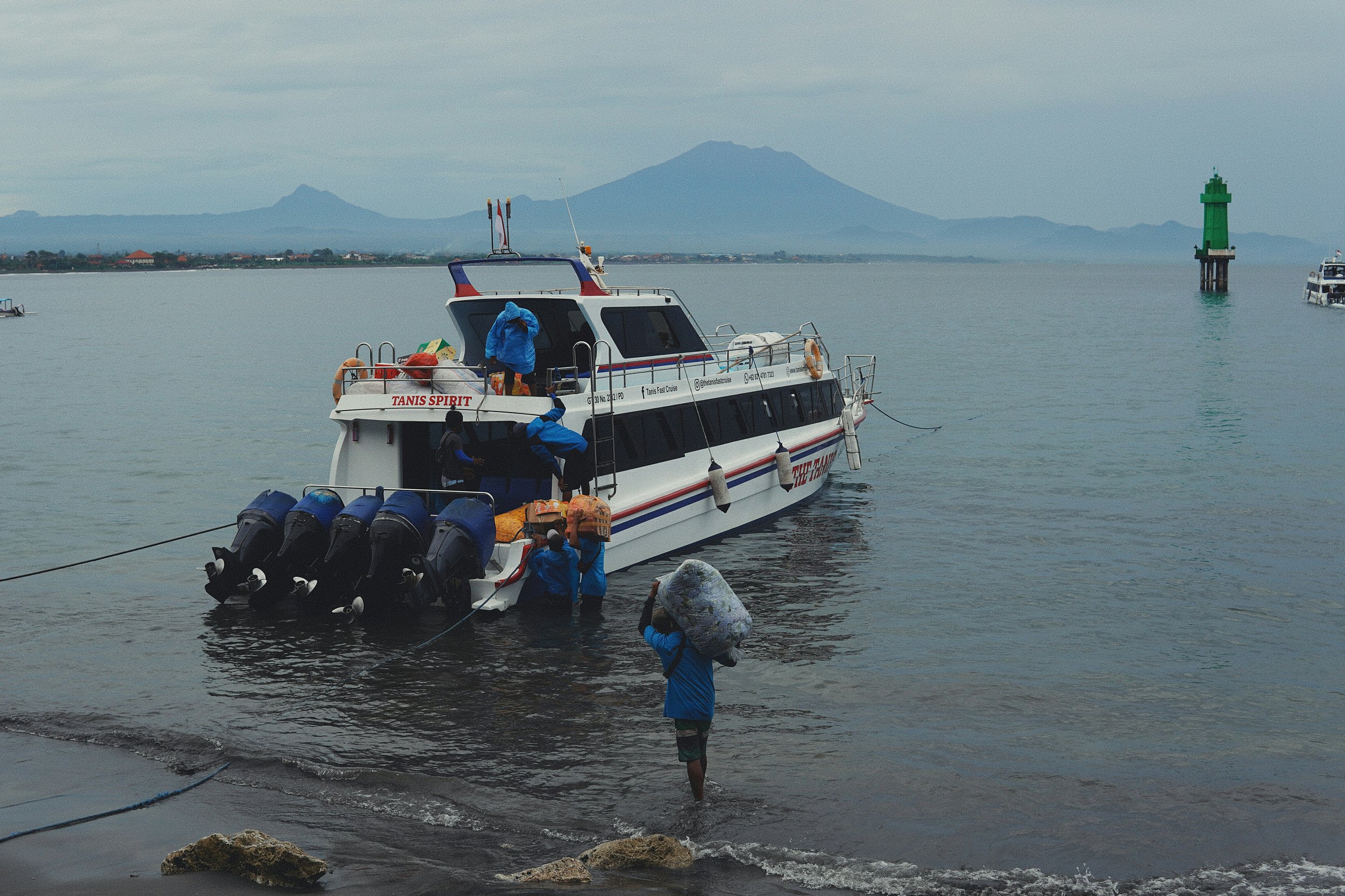23 Travel Tips: How to Spend Less While Travelling
This post may contain affiliate links, meaning we get a commission if you decide to purchase through our links at no cost to you. This helps fund Slower Travels without costing you a cent!
We have completed our first year as full-time time nomads, happy to report we are enjoying the challenge and relishing every day. We know how lucky we are to live this lifestyle.
That, of course, doesn’t stop us from worrying about the dreaded expense creep. Another boujie coffee is oh-so-tempting. You’ll need some discipline or the budget falls apart.
So, if you’re thinking of taking the exciting leap to join us, or you’re retiring and looking to live on a limited income of $2,000 USD or less, these options will save you money and keep you going long-term.
Travel to Low-Cost Destinations
No doubt most of us are aware that Southeast Asia is a low-cost destination. However, there is some difference between the countries, regions and cities as to how cost-effective they are. Keep in mind that longer visas keep the prices down. A great reason we have used Malaysia in the past when work is hectic is for the 90-day free visa on arrival.
Pro Tip: Use Numbeo to review your options before you decide.
Be A Bargain Hunter
Just because you’re travelling to low-cost areas, does not mean you shouldn’t still be a bargain hunter. This is a mindset we had before leaving New Zealand, as we were desperate to get started on the nomad life and with reasonable goals comes good habits. Being frugal is a lifestyle and actually becomes quite addictive. You can gamify the process of tracking and spending less.
Find The Best Flights
There is no doubt that at times it’s cheaper to stay longer in the same location. However, with visa expiries, you don’t always have that luxury. Use Kiwi.com to research your best options. Make sure you are using incognito mode to avoid cookies that may push up the prices.
Use a Low-Cost ATM
In most countries, there is at least one bank that will offer a cheaper fee at the ATM. Have a look online and pick the right option. In Thailand for example, it’s $5 New Zealand dollars cheaper for us to use the AEON bank. It doesn’t sound like much, but if you're in the country for a while, it’s worth it. Also, withdraw your money in bulk to reduce your ATM costs.
If you are American, I’m jealous as you can usually get the Charles Schwab ATM card which reimburses your ATM fees if you keep the receipts. For the rest of us, your best bet is to get a Wise account to cut back on your transaction fees and get a good rate.
Make Your Own Breakfast/Lunch
During good cash flow periods, we typically get most meals from street sellers or restaurants. This is one of the massive perks of travelling in Southeast Asia: stunning food at bargain prices. However, three meals a day with a couple of coffees can add up quickly. Going the DIY route for a couple of meals can be a huge cost-cutter.
We find breakfast the easiest to make ourselves. Get some cereals, milk, chia seeds, fruit or whatever you prefer. Most accommodations will also provide free coffee. Of course, it’s not the best, but grit your teeth and be happy with the knowledge you helped your poor budget.
For lunch options, you could get some cans of tuna to make a sandwich. Or a chickpea salad is an excellent healthy vegetarian option. This way you can keep the cost of the first two meals under $10 USD.
Book Accommodation With Free Breakfast
The other way to reduce your daily food costs is to narrow your search for accommodation that includes breakfast and then Bob’s your uncle. Of course, do the quick math when you're reviewing the booking prices, if it’s $10 extra each for breakfast then it’s not much of a saving when you can get a decent Western breakfast for $5 around town. If it makes sense this can be a good option.
Stay Longer
By staying longer in your current location you’ll benefit from discounts from Airbnb and Booking.com. We’ve seen some crazy deals on Airbnb of over 50% off for staying for a month. If you can work it around your visa, it can be worth it.
Track Spending To Avoid Expenses Creep
Track your spending and keep your discipline. Usually, we travel slowly and have a monthly budget of $2,000 USD per month. Knowing what you want to spend before arriving will help control your temptations. One easy option is to have a spreadsheet on your phone and subtract the spending from your total daily budget. For us not adding more working hours to cover the dreaded expenses creep is very important. So, we must make choices to match our budget. You’ll have to decide if this trade-off is worth it for you. Is this purchase going to add to my experience, or could it increase my work time and thus decrease my fun time?
If we are working only 3 hours per day, then each dollar is more precious. How much of my precious time do I want to swap for each dollar? If you believe, as we do, that time is more valuable than money, it’s a fair trade.
Eat Local Food, Buy Locally Made Booze
When in Rome as they say. Ditch your longing for a Western breakfast and eat local foods. You might even love it. In Malaysia, I fell in love with Nasi Lemak for breakfast which is rice and chicken with a beautifully spicy sambal sauce. Eating local is usually around 50% less than Western food.
Pro tip: Food located near food markets if often super cheap as this services the local population.
Haggle Like You’re An Old man
Haggling is part of the fun of travelling. What’s more, it is often expected in flea markets. Use the classic technique of politely walking away after a couple of rounds. In the Philippines, I had the guy come after me on a moped 15mins down the road after I walked away from his shop. It’s a great memory for me and I got my bargain so a win-win.
Choose Walkable Locations
For example, staying in Chiang Mai's old city saved us money on transport as it’s of the most walkable city we’ve encountered. Being able to walk to your yoga class or get your 10,000 daily steps in a lovely quiet location with lots to see for free, keeps away the evening blues when cash flow is tight. It’s counterintuitive but staying further outside the main areas to reduce costs can be a false economy due to paying for taxis to the main areas.
Pro Tip: UNESCO world heritage old towns, usually make for fantastic walking cities.
Beautiful Chiang Mai - Wonderful Walkable City
Locations With Public Transport
Most major cities have good public transport systems. Buying weekly or monthly public transport tickets can often reduce the cost further. Plan online for serious bargains. Most of the time public transfer is cheaper than GRAB or BOLT or whatever taxi app you’re using. Plus you're adding to your travel experience by getting out there and mixing with locals. That is priceless.
Book Some Activities Online
Before you arrive why not go online to book and purchase tickets? Travel guides Tripadvisor and content from online bloggers who have already passed through the area can give you great ideas of what to see and do.
Use Local Markets
Heading to local markets to buy goods or just browse away is always an eye-opening and interesting experience. Sampling new fruits and chatting with happy locals is one of the best experiences you can have for free. You can pick up bargain food at local prices all while educating yourself on the local area.
Local Markets in Pai
Prioritize Activities, Plus Free Options
Use an app like TripAdvisor to find good free options like galleries or museums. Prioritizing these based on your personal values means you won’t feel like you're missing out. Which activity will mean the most to you, doing a local cooking course or ziplining down the highest mountain in the area? We often start by listing the area's unique activities and start with that.
Know The Bank Conversion Rate
It’s one thing using an app like XE to tell you how much the local currency is going to roughly be in your money, but in reality, that is not the rate you actually get. Check at a local bank to see the correct rate given. Then you can budget using the correct conversion rate which will help you stay on track.
Look Outside Tourist Areas for Accommodation
In Kuala Lumpur, we stayed in an older neighbourhood of Pudu. You could count the overseas visitors we bumped into over a month period on one hand. This meant costs for rent, food and drink were incredibly good value. It also meant more interaction with the locals, so it’s a massive win. During this period, we were under the pump with work so it gave us time to batten down the hatches and save for the next leg of the trip.
Get The Right Travel Insurance
Do you need all the silly bells and whistles? Do your due diligence, and make sure you not overpaying. We use SafetyWing and it’s super easy to turn on and off when required. As always do your homework and understand what activities your insurance covers including cars and mopeds.
Do Home Workouts
Doing home workouts is a great way to stay in a routine. I do a Monday, Wednesday, and Friday workout from our hotel or guesthouse. You’ll stay fit while travelling but also avoid gym costs. I travel with resistance bands, a yoga mat, and a fitness app on my phone and that’s it.
Book Accommodation with a Dedicated Workspace
Select a dedicated working space when you book using online booking sites like booking.com, and Agoda. Co-working spaces are obviously fantastic but can be very expensive to use consistently. Working from cafes is cheaper but doing this every day can add up too. Also in the middle of a wet season do you want to be heading to a café every time you need to do have a Zoom call? Another handy tip is to book a hotel with a decent lobby area. That normally provides a good space to work.
Homa apartments Phuket - Great living and working space combined.
Cook For Yourself
Cooking for yourself pairs with buying local food from the market. Obviously, it requires you to have your own kitchen or at least a shared kitchen so keep this in mind when you are booking your next location. Also, a massive positive is that it’s typically much healthier than eating out. You’re in control of what goes into your dishes.
Buy Your Own Booze
In the Philippines, we bought the local rum for about $5 for a litre. This is insane when compared to drinks bought by the bars and restaurants, plus the locals loved seeing the tourists drinking a local drop. Most countries make their own beer and spirits to indulge in.
Limit Your Souvenirs
As beautiful as the many knickknacks you’ll find in the market look, if you’re a full-time traveller it’s more space taken from your bag and more weight to carry. As the saying goes ‘Take nothing but pictures leave only footprints’. So true in this case.
The Best Things Are Free
To us, there is an ever-growing wonderment of traveling slowly. It turns out the best things in life are free. Some of our most memorable experiences traveling are not paying for a tour or zip lining down a mountain face. The experiences we talk about the most to each other over the dinner table, when we light up the most, are the personal connections we make with locals and animals from taking it slower.
In Chiang Mai, each morning after coffee, we’d walk to the same temple just down the street from our guesthouse and play with the cats. After a week of the same, the monks living in the monastery would bring the kittens out for us to play with and we’d sit there with the monks and play with the wee animals with huge smiles.
In the Philippines, we stayed for a few weeks in a beach hut, where a downtrodden skinny stray dog would sleep outside our hut on the bench seating area looking terrified of the world around her. Every morning I would get up and sit outside next to the frightened pooch working away on the laptop, and she’d be shaking and not making eye contact. After a week of this routine, plus me bringing her food, one morning while she laid back and put her paw on my leg. I moved my hand towards her, and she gave me a little lick. Honestly, my heart wanted to burst, a breakthrough I won’t forget.
In Phuket, we went to the same coffee shop every morning and although we couldn’t communicate with the mother and daughter, the mother would speak in full flow as if reciting a story each morning. Of course, we couldn’t understand but it didn’t seem to matter. One morning we went to the shop, and it was closed for the first time. Later in the day as we were walking through Phuket's old town a moped pulled up behind us, it was the mother and daughter who’d stopped to let us know her grandfather had passed away and that’s why the shop wasn’t open today. We passed on our regards and gave them hugs and they left. I still think about that moment. We’d been in Phuket only a month and yet we’d built a connection without words that we won’t forget.
And those are the moments we still talk about. These moments, only cost your time and live long in the memory, just by talking it slow.

